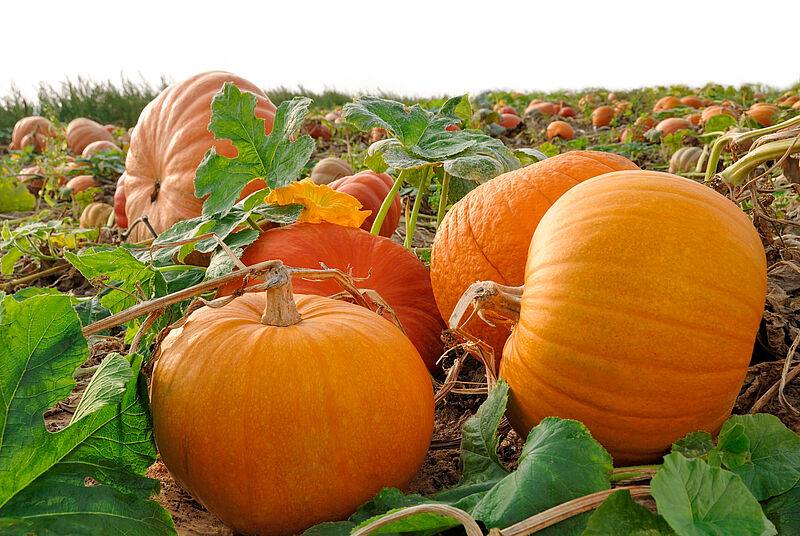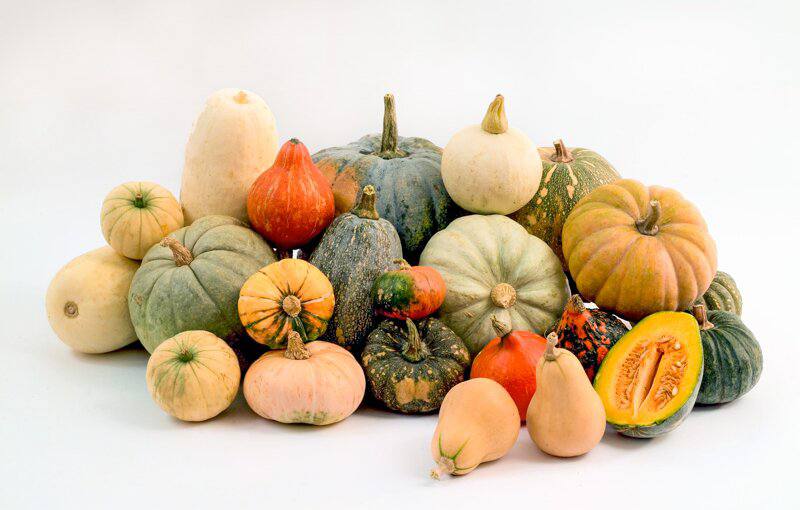Іn the ever-evolving landscape of global agriculture, Egypt is taking significant steps towards sustainability by focusing on indigenous pumpkin varieties. A recent study led by Dr. Mady highlights the pivotal role these native pumpkins play in enhancing food security, particularly as climate change and poor soil conditions threaten traditional farming practices, writes EastFruit.
For generations, innovative Egyptian farmers have developed pumpkins adapted to local conditions that may now be threatened by varieties imported by foreign corporations, which are not bred to match the local environment.
Emad Mady, a researcher at University of Massachusetts-Amherst, traveled through the fertile Nile Valley, visiting traditional farmers and collecting the seeds of different types of pumpkin.
“Our goal,” said Mady, “is to determine which pumpkin cultivars are best suited for the local environments, and then use these cultivars as the basis for furthering pumpkin production in Egyptian agriculture.”
Mady is the lead author of a paper appearing in Molecular Biology Reports, which identifies molecular and biochemical differences among the nine distinct varieties of pumpkin grown in central and northeastern Egypt. The research team believes their study is vital for identifying the best varieties for conservation and improvements to defeat food insecurity across the world.
Read also: Egypt doubles direct exports of mandarins to Poland last season
In 2022 Egyptian government has promoted their cultivation because they require less water than other crops, resist salinity and yield plenty of high-grade foodstuffs. The squashes are iconic in Egypt, where a round, white version is common.
The generations of work by independent farmers may now be threatened by large agricultural companies that have introduced foreign seeds that are not adapted to local conditions, the scientists said. These new varieties may threaten the survival of native varieties, thus endangering food security in an unstable climate.

For the study, Mady worked with researchers at Al-Azhar University and the Agricultural Genetic Engineering Research Institute, where the seeds he collected from the farmers were tested. On a molecular and chemical level, the tests identified the fat, protein, moisture, carbohydrate and mineral content of the local pumpkin varieties, as well as the genetic markers that are hallmarks for each.
Dr. Mady’s team has unveiled the resilient capabilities of Egyptian pumpkins, which have adapted to withstand the harsh climatic conditions and less-than-ideal soil of the region. These genetic traits make them invaluable allies in the fight against food insecurity, especially in the face of increasing global challenges.

Central to this research is the preservation of the genetic diversity of these native pumpkins. Non-native seed varieties, while often introduced with promises of higher yields, pose a significant threat to the genetic traits that enable the local pumpkins to thrive. A loss of these traits could mean a reduction in resilience, ultimately undermining sustainable agriculture efforts in Egypt.
“One of the biggest problems in meeting the world’s food security challenges is an international collaboration that can integrate local knowledge and resources to bring about positive change. This research is a model of how the small farming community and the scientific community can work together to address these pressing needs,” said study co-author Timothy Randhir, who teaches environmental conservation at UMass Amherst.
Among the foreign companies offering seeds and other products to Egyptian farmers are Rotam, Bayer, Seminis, US Agriseeds, and Betaseed. Bayer, based in Germany, acquired U.S.-based Monsanto for $66 billion.
Monsanto had developed genetically modified seeds that resist weed-killing herbicides such as glyphosate and dicamba. Glyphosate was also developed by Monsanto and marketed under the Roundup brand. Monsanto’s seed lineup as of 2012 included alfalfa, canola and sugarbeets, dubbed “Roundup Ready” for resisting the herbicide used by farmers to control weeds.
Controversies in the 1990s over genetically modified foods, as well as the legal tactics adopted by companies such as Monsanto, led to mass protests in world capitals and finally to increased regulation of genetically modified foods and seeds. Monsanto’s brand has since vanished, and its products are now manufactured under the Bayer brand.
The study calls for the implementation of responsible cultivation practices that resonate with traditional agronomic knowledge. Protection of biodiversity should be prioritized, ensuring that the unique genetic resources of local pumpkin varieties are not lost to the tides of agricultural modernization.

Furthermore, Dr. Mady’s research aligns with broader global initiatives to bolster food security and develop agricultural systems that can adapt to changing climates. By utilizing Egypt’s native crop varieties, the country can advance its sustainable economic growth while preserving its rich agricultural heritage.
This research underscores the importance of cooperation between governmental and international bodies to protect and effectively use these vital genetic resources. Supporting local farmers in maintaining and leveraging the adaptability of indigenous crops is essential for long-term agricultural sustainability and resilience.
In summary, as EastFruit highlights, the focus on Egypt’s indigenous pumpkins represents a crucial pathway towards a more sustainable agricultural future. By embracing and preserving these native treasures, Egypt can secure its food systems against future challenges and continue to flourish amidst global environmental changes.
The use of the site materials is free if there is a direct and open for search engines hyperlink to a specific publication of the East-Fruit.com website.




